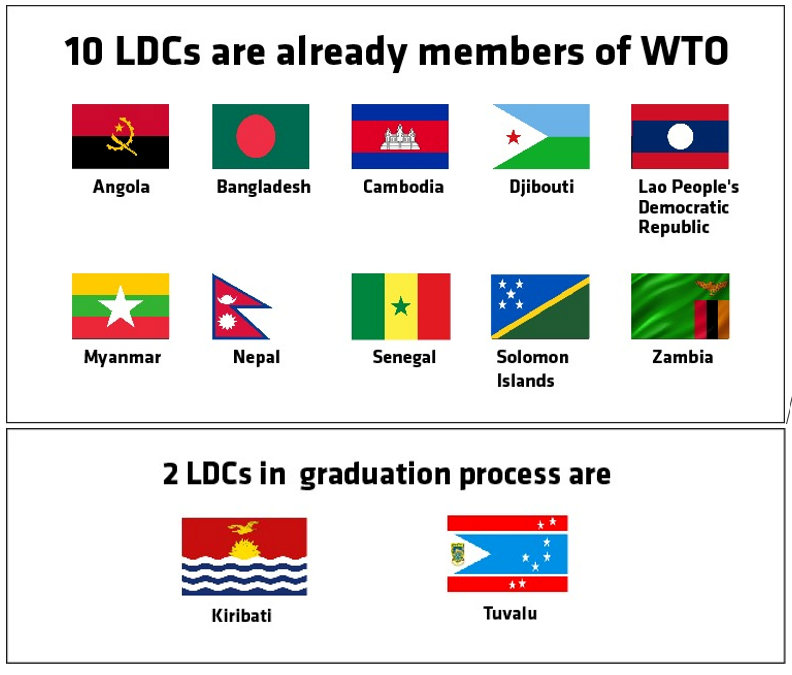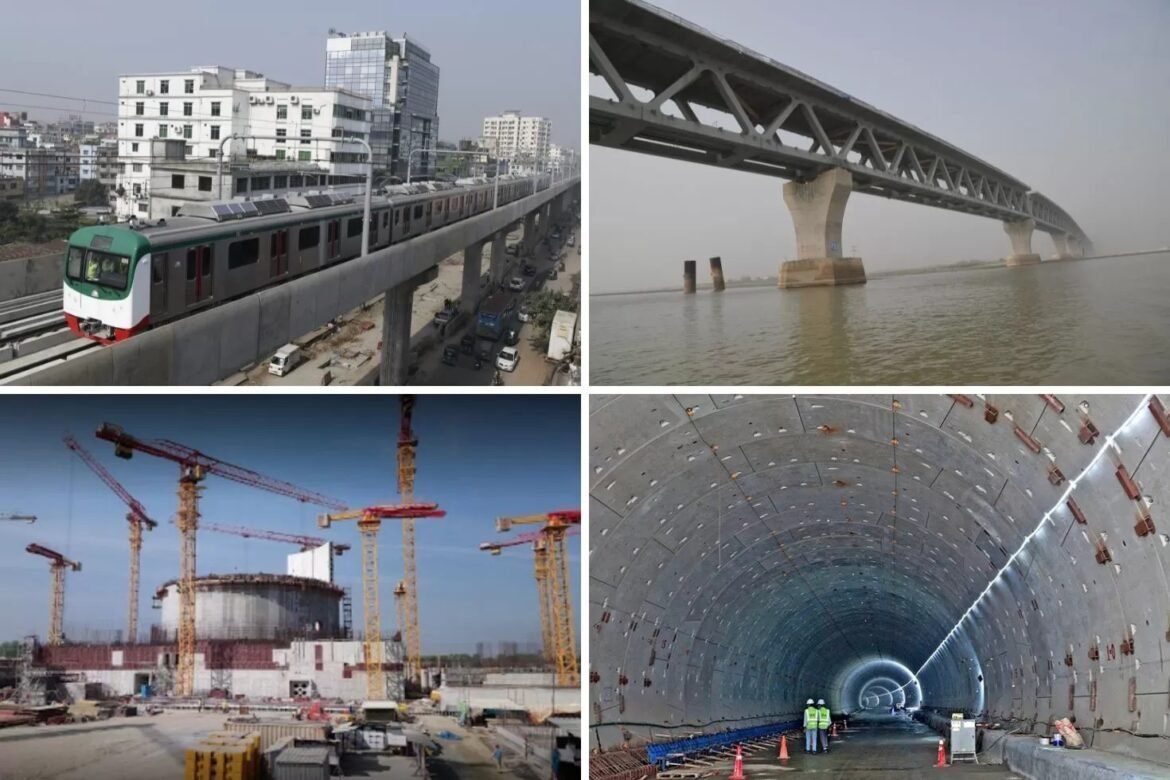Bangladesh is moving forward at an irresistible speed through rocky roads to build up a modern country as well as her global brand value. The country is now a development surprise to the world as it has made tremendous achievements on all fronts.
Bangladesh’s graduation from the LDC category, driven by meeting key socio-economic indicators, underscores its remarkable progress. However, sustainable graduation hinges on the nation’s ability to navigate global opportunities amidst evolving geoeconomics and address inherent challenges. The government’s establishment of a high-level committee and sub-committees reflects a proactive approach to formulating concrete action plans. While Bangladesh continues advocating for LDC-specific support measures in the WTO, emphasis must be placed on implementing domestic measures to ensure a confident and robust transition.
You can also read: Bangladesh-Greece Cooperation: A Multifaceted Partnership
As per the decision of the UN General Assembly in November 2021, Bangladesh is poised to leave the group of least developed countries (LDCs) on November 24, 2026, marking a significant milestone nearly 50 years after joining this cohort in December 1975. The recent Twelfth Ministerial Conference of the World Trade Organization (WTO-MC12), held in Geneva from June 12 to 17, 2022, served as a crucial juncture to assess global support for the sustainable graduation of these transitioning LDCs.
However, the outcomes of MC12 fell short, indicating a need for Bangladesh to prioritize its domestic preparations for a successful and sustainable graduation.

Journey Towards a Smooth Transition Mechanism
Graduation from the LDC category is highly desired by Bangladesh, but it also needs to get trade protections for a solid economic growth.
Over the past three years, the WTO’s LDC group has been actively pursuing a mechanism for a smooth transition within the organization. Their objective is to extend LDC-specific preferences and provisions in WTO agreements even after graduation. Discussions are ongoing within the WTO Sub-Committee on LDCs regarding other elements of the LDCs’ requests concerning special and differential treatment.
The Chair of the General Council, Ambassador Athaliah Lesiba Molokomme of Botswana, lauded all WTO members, particularly the LDCs, for this positive outcome. She acknowledged the tireless efforts and pragmatism of all members, as well as the current and former LDC Group Coordinators and the Focal Point for LDC Graduation, in bringing this issue to a successful close.
In a world where trade plays a pivotal role in the economic development of nations, this decision by the WTO is a beacon of hope for countries like Bangladesh as they embark on their journey to graduation from the LDC category. It ensures that these nations will continue to have the support they need to navigate the challenges and seize the opportunities that come with progress.
Nonetheless, Bangladesh is set to complete its LDC graduation by 2026. Consequently, countries like Bangladesh, undergoing LDC graduation, will be entitled to special trade privileges.
The LDC Graduation Process
As of now, there are 46 Least Developed Countries (LDCs) in the world, with 16 of them in various stages of the graduation process. Among these, ten are already WTO members, which are:
- Angola
- Bangladesh
- Cambodia
- Djibouti
- Lao People’s Democratic Republic
- Myanmar
- Nepal
- Senegal Solomon Islands
- Zambia.
Four other LDCs are currently negotiating the terms of their entry into the WTO, namely
- Bhutan
- Comoros
- Sao Tomé Principe
- Timor-Leste
The remaining two LDCs on the graduation path are:
- Kiribati and
- Tuvalu

How Bangladesh Is Preparing for Graduation?
The Government of Bangladesh is attaching the highest priority to ensuring smooth and sustainable graduation with momentum. As part of this process:
- A National Committee on Least Developed Country (LDC) Graduation, led by the Principal Secretary to the Honorable Prime Minister Sheikh Hasina, has been established. Membership includes relevant Ministries and organizations from both the public and private sectors.
- Seven thematic subcommittees have been established under the NCG’s guidance to address various core issues related to graduation, such as preferential market access, trade agreements, Intellectual Property Rights (IPR), WTO issues, investment, domestic market development, export diversification, internal resource mobilization, tariff rationalization, smooth transition strategy, and branding Bangladesh abroad.
- The Economic Relations Division (ERD) has initiated the “Support to Sustainable Graduation Project (SSGP)” to assess the impacts of graduation, provide necessary capacity-building support to relevant ministries and stakeholders, and promote this achievement domestically and internationally through research papers and publications.
- As recommended by the United Nations, graduating LDCs should prepare a national Smooth Transition Strategy (STS) with assistance from development and trading partners. A nine-member Subcommittee on STS, led by the Secretary of ERD and co-led by the Secretary of the Prime Minister’s Office, is responsible for formulating the STS.

- A Working Group comprising officials from relevant ministries and the private sector, along with a Joint Task Team comprising government representatives, the private sector, and development partners, are supporting the Subcommittee on STS in preparing an inclusive transition strategy.
- Bangladesh, alongside the LDC Group, has submitted a proposal to the World Trade Organization (WTO) for the continuation of existing LDC-specific International Support Measures (ISMs) after LDC graduation.
- The Government is conducting sectoral studies, research, and technical papers to assess the impact of LDC graduation and formulate relevant strategies.
- Bangladesh is engaging in regular dialogue and knowledge sharing through the UN and other international platforms on sustainable LDC graduation issues with other graduating LDCs in the Asian region, such as Nepal and Lao PDR.
- Building on the success of implementing the Istanbul Program of Action (IPoA), Bangladesh is committed to implementing the Doha Program of Action (DPoA). A National Action Plan for DPoA implementation has been prepared, and a high-powered committee headed by the Cabinet Secretary is overseeing its implementation.
Moving Forward
Guided by prudent government policies and propelled by a dynamic, industrious workforce, Bangladesh has experienced significant economic growth over the past decade and is poised to formally graduate from the Least Developed Country (LDC) category. To sustain this progress, the nation is now dedicated to the ambitious goal of attaining upper-middle-income status by 2031 and developed country status by 2041, while also remaining steadfast in achieving the Sustainable Development Goals mandated by the United Nations by 2030. Therefore, graduation itself represents not the ultimate destination, but rather another significant milestone on the path toward realizing the vision of becoming a developed country by 2041.
Conclusion
Bangladesh is moving forward at an irresistible speed through rocky roads. The country is now a development surprise to the world as it has made tremendous achievements on all fronts. As part of the ‘Vision 2021’ and ‘Vision 2041’ plans, Prime Minister Sheikh Hasina’s government has focused on diversifying the economy, fostering entrepreneurship, and attracting foreign investments. The goals will reach the ultimate point by 2041 after going through different stages.


